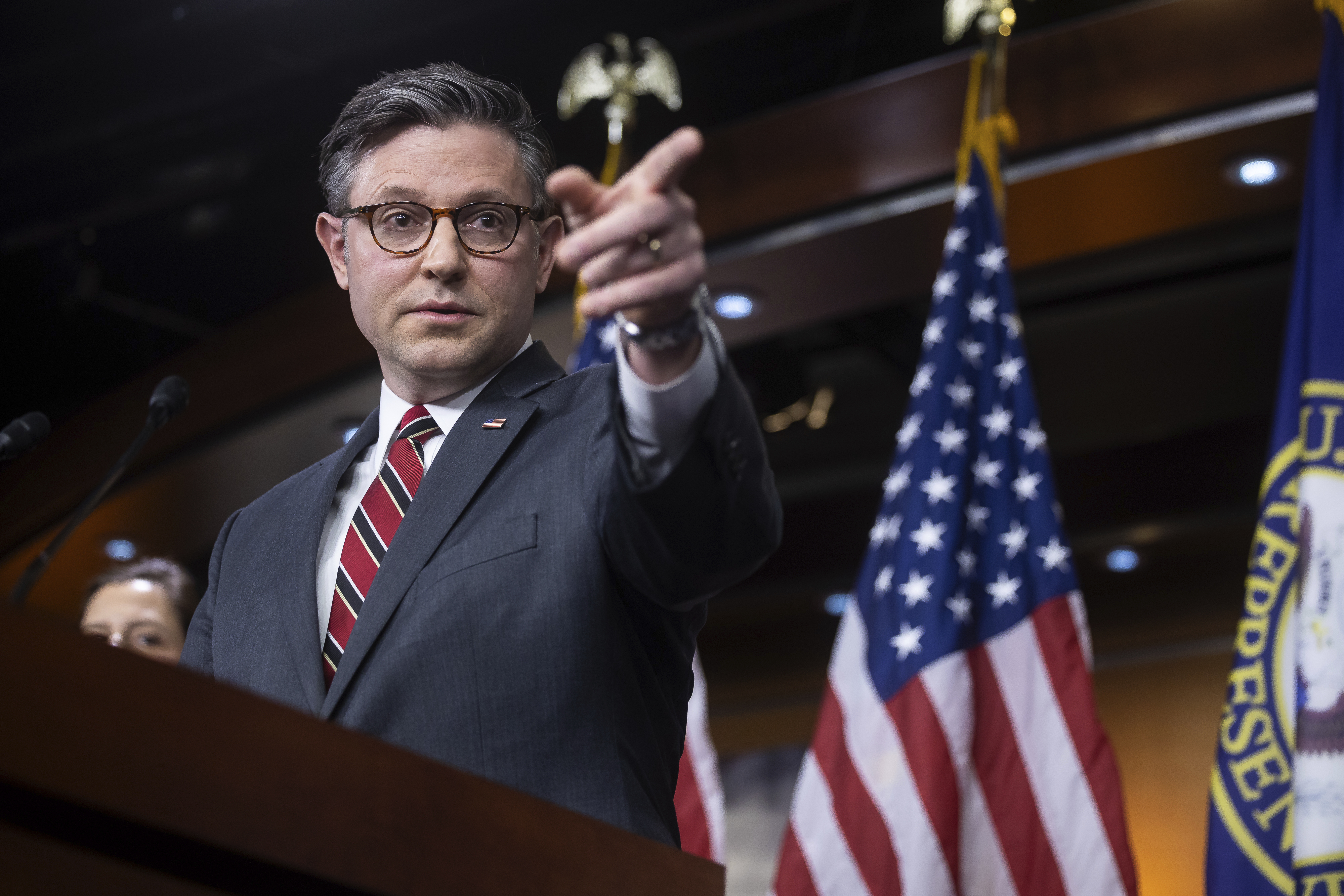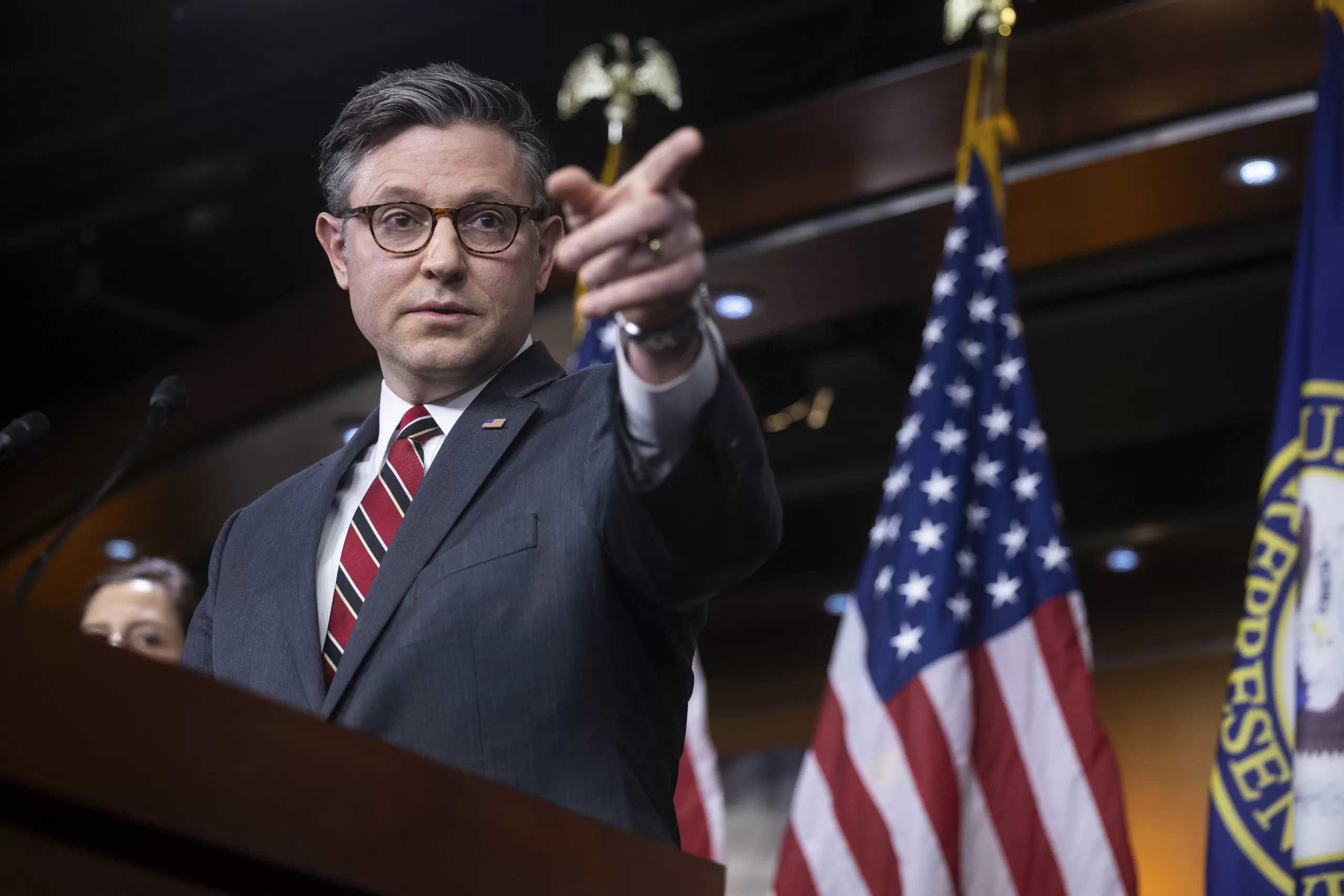
Johnson stressed to Republicans that he feels optimistic about meeting next week’s deadline for passing the first four bills, which fund the departments of Agriculture, Energy, Transportation and Veterans Affairs. But in an acknowledgment of the major disagreements still plaguing spending talks, he said a partial government shutdown is possible.
Congressional leaders have been aiming to announce a deal as soon as Sunday night, which could include a package of some or all of those measures and a possible short-term funding extension that would buy more time for negotiations on the rest of the dozen bills, which present even bigger challenges. One possible date floated for that stopgap is March 22.
Top funding negotiators in both parties have long acknowledged what the speaker bemoaned Friday night about whipping support for final funding bills. House Republican leaders are expected to need overwhelming support from Democrats to pass the spending measures at a threshold of nearly 290 votes, the two-thirds bar required if the majority skips the typical rules for floor debate.
The same conservatives who have been tanking GOP procedural votes are calling on Johnson to forge ahead with a funding strategy that would trigger tens of billions of dollars in cuts to non-defense programs.
According to a source on the Friday night conference call, Rep. Chip Roy (R-Texas) pressed the speaker to insist on a stopgap through the end of the fiscal year. Unless Congress turns off budget caps baked into last year’s debt limit deal, a long-term patch would force cuts to domestic programs while forgoing billions of dollars in defense funding the speaker negotiated in the
spending agreement he struck with Senate Majority Leader Chuck Schumer last month.
